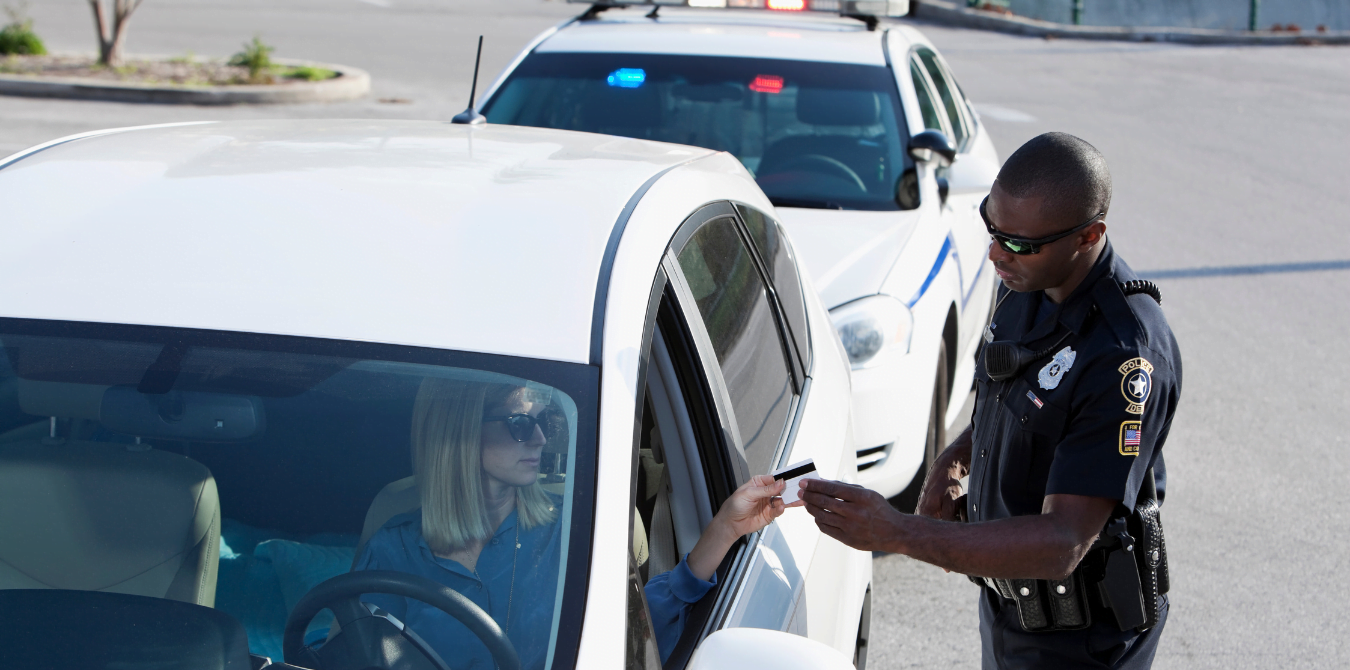What to Do If You Get Pulled Over for DUI


Reviewed by
Brian Greenberg
CEO / Founder & Licensed Insurance Agent


Reviewed by
Brian Greenberg
CEO / Founder & Licensed Insurance Agent
The United States has some of the world’s toughest DUI laws, with drunk driving considered a criminal offense in the country. Moreover, all 50 states and the District of Columbia have a zero-tolerance law for underage DUI, making it illegal for anybody under 21 years old to get behind the wheel with even trace amounts of alcohol in their system.
Of course, the best way to avoid a DUI charge is never to drink and drive. However, people are prone to making poor decisions when drinking. The decision to drink and drive could get you in trouble with the law and lead you to jail, especially if you don’t know your rights or how to respond to the police officer’s questions during the interrogation. The next steps you take could significantly impact the charges you face and the outcome of your case.
Here’s what you should do if you’re pulled over for a DUI.
Table of Contents
As soon as you notice police lights behind you
If the cops suspect you’re under the influence, they’ll be watching out for “furtive motions” or unusual behavior. The calmer you can be, the more the police officer will recognize that you are in control and willing to cooperate.
You should always treat police officers with respect. When stopped for a DUI, follow their instructions attentively and assert your rights politely when required. Police officers are more likely to take offense and arrest rude drivers. They may even write a damaging report that could jeopardize your case later.
You have the right to remain silent, and no law enforcement officer has the authority to force you to divulge information against your will. While you need to provide the police with basic information such as your name, address, social security number, and driver’s license, there’s nothing else you need to give or answer.
If the officer asks, “Do you know why I pulled you over?” Tell them you don’t, even if you think it’s for suspected DUI. It’s not lying. After all, nobody knows that with absolute certainty. Additionally, if the officer accuses you of something, refuse to respond or answer the questions without your attorney present.
The officer will likely ask, “Have you had anything to drink tonight?” Some drivers would blurt, “I may have had a glass or two,” thinking this would somehow ease the tension. It won’t. You’re only giving them a reason to arrest you.
To avoid incriminating yourself:
Any information you disclose could be used against you in court. Most cops will try to make small talk or ask you direct questions about yourself that you are not required to answer. Know your rights and stick to your decision to keep silent.
Police can search your vehicle without a warrant if they have probable cause, which includes seeing a bottle or catching a whiff of alcohol in your vehicle. However, if the police do not find probable cause to perform a warrantless search, they frequently use the driver’s consent as a legal basis. If you provide it, they will be able to conduct a full search of your car, including the trunk and glove box. Otherwise, they can only look around and check what’s in plain sight.
You should not consent to a search of your vehicle because doing so waives your right to challenge the search if the police find evidence that they can use against you. However, your refusal to allow a search without a warrant cannot be used against you in court.
Stay in your car unless the officer asks you to exit the vehicle, and make sure you don’t stumble or lose balance as you get out. Once outside, the officer may try to make you take a sobriety test. It is in your best interests to politely but firmly decline roadside testing, including the handheld breath test. There’s no need to offer a lengthy explanation why. You can simply say, “I refuse to participate in a field sobriety test, “ or “My attorney has advised me never to take a test like this.”
Roadside testing is voluntary, and your best option is to decline it. Even if you’ve had only one or two drinks, don’t agree to it. Field sobriety tests are notoriously unreliable. Even people who are not impaired at all fail them. Besides, refusing these tests cannot be used against you in court.
While field sobriety tests are voluntary, chemical testing is required by law once you’ve been arrested for DUI. All 50 states have “implied consent” laws that require those who have been lawfully arrested for DUI to undergo a breath or blood test. These chemical tests are a more reliable way of measuring a person’s level of intoxication compared.
Refusing a chemical test may result in the following consequences:
If the case goes to trial, the jury may interpret your refusal to submit to chemical testing as a sign of guilt. In some states, you may even face additional charges or be convicted of a separate crime for refusing a chemical test.
If authorities believe there is probable cause to arrest you for driving under the influence, they will escort you to the nearest jail or police station, where you will be booked and cited for the offense. You’ll have to stay in jail until someone bails you out or if a judge releases you.
When you appear in court for the formal charging of your DUI offense, you have the option of pleading guilty or not guilty. If you plead guilty to DUI, you will receive the punishment imposed by the court. If you plead not guilty, a trial date will be set.
Hiring an experienced DUI attorney to handle your case will increase your chance of attaining good results. DUI cases require specialized knowledge and are difficult to defend. Your lawyer must be capable of challenging the legal issues surrounding the case – from the mistakes in how the arrest was carried out to the reliability of the laboratory that tested your blood sample.
The police often make mistakes in handling or executing a DUI arrest. If you prove a single error by the arresting officer, it could be enough for the court to drop your case. A qualified and proactive criminal defense attorney can guide you through the process and help you avoid the harshest consequences of a DUI.
****
Q: Do you know why you were asked to pull over?
A: “No, officer, I’m not sure why you pulled me over.”
Q: May I have your license, registration, and insurance information?
A: “Here you go, officer.”
Q: Have you had any drinks?
A: “I choose to remain silent and not respond to the question.”
Q: Where have you been?
A: “I will not respond to that question; I have chosen to remain silent.”
Q: Do you consent to a vehicle search?
A: I do not agree to a vehicle search without a warrant.
Q: Can you get out of the vehicle?
A: Sure.
Q: Can you perform roadside tests so I know you can safely drive?
A: “I will not consent to roadside testing.”
Q: You are under arrest for DUI. Would you prefer to submit to a blood or breath test at the station? Failure to do so will result in your license being suspended immediately.
A: “I prefer to take a breath test,” or “I’d like to take a blood test at the station.”